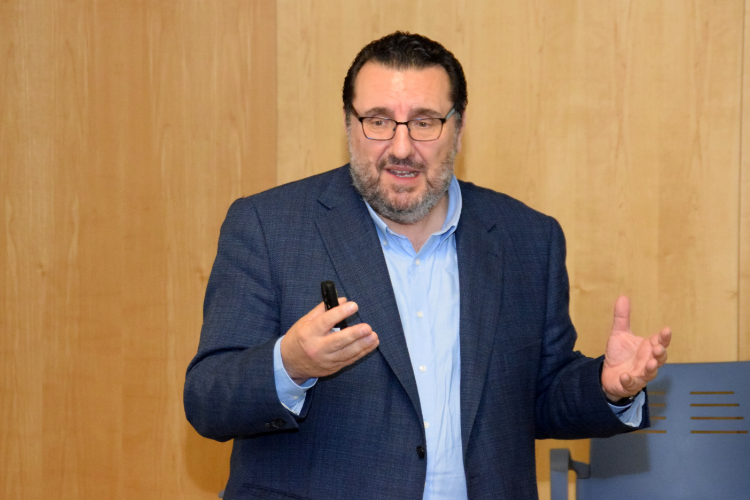As a strategic sector, tourism needs to be protected and reconsidered. “Does tourism drive or damage other sectors?” This was one of the notable questions Jordi Ficapal, director of education and innovation at HTSI.

As a strategic sector, tourism needs to be protected and reconsidered. “Does tourism drive or damage other sectors?” This was one of the notable questions Jordi Ficapal, director of education and innovation at HTSI, asked the educational community of the School of Tourism and Hospitality Management Sant Ignasi. He did so at a conference marking International Tourism Day.
Other key topics addressed were the consequences COVID-19 has had on society and the sector, its impact on destinations and tourism businesses, the acceleration of trends that existed before the pandemic, and experts’ predictions on the future of tourism in Spain.
As Ficapal noted, “some experts say we might not see a recovery until 2023-2024.” In other words, “this crisis will last longer than expected, and it will have a greater impact on earnings and employment.”
How can we face these challenges? According to Jordi Ficapal, the administration needs to adopt resilience strategies and create recovery funds that match the tourism sector’s significant impact on the economy. The first stage of recovery may require survival strategies, but the second will need to be based on planning: the generation of external alliances and agreement among stakeholders, businesses and local society. Now is the time to strengthen the relationship between tourism and local citizens: “if we want to find our way out of the crisis, citizens can’t have any doubts about the importance of tourism”, the Professor stated.
At destinations, the health indicators followed by potential visitors must improve. Hygiene, cleanliness and health safety have become a must (“it needs to be clean and look clean”). Another added challenge is improving the customer journey, providing travellers with full security and the best possible experience.
“Wekeep travelling: It's a need"
According to Jordi Ficapal, destinations also need to address the importance of the environmental agenda: “there was a pre-existing concern for the environment that the pandemic has increased”, Ficapal noted. A rising trending topic is #travelshame: “don’t travel—it endangers your community and the receiving community.”
As a result, businesses don’t just have to be sustainable: if they want to attract customers, they need to prove how sustainable they are.
What other strategies will help companies recover? According to HTSI’s learning and innovation director, “investing in talent and training, offering high-quality services, and optimizing and improving processes.”
Beyond the digitalization of mobile technology, two key business activities, it is important to emphasize the need for a greater connection between management and strategy departments and production departments. This is needed to make decision-making and change processes more agile—a requirement that has been called “the agile revolution.”
Jordi Ficapal completed his lecture on a positive note: “don’t forget: we’ll keep travelling. The desire to live temporarily as citizens of other cultures, to taste other ways of life or guarantee our personal welfare with healthier, more sustainable activities that make us feel better… it’s a need that won’t go away.”










